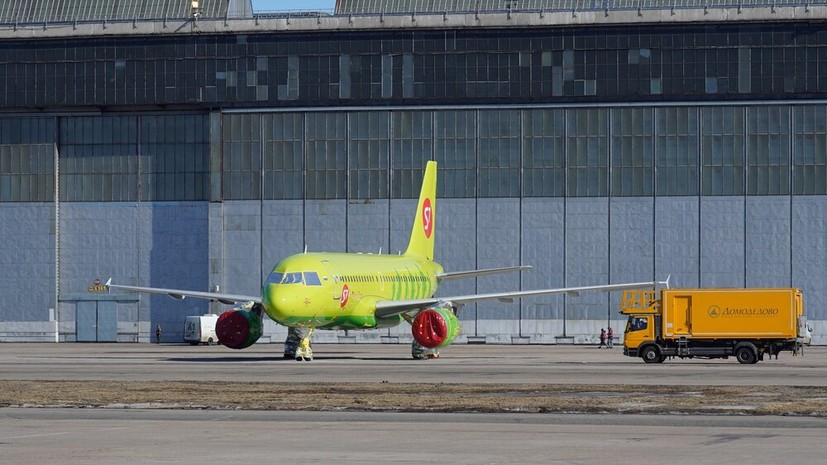The Russian airline S7 announced the suspension of the Citrus low-cost airline project.
His fate will be determined at the end of the year.
“In the current circumstances, the S7 Group is freezing the Citrus low-cost airline project,” RIA Novosti reports the S7 message.
The representative of the airline specified that this year there would be no deliveries of aircraft required for the launch of the low-cost airline.
At the same time, S7 noted that the project team will continue to work in the holding, in particular, on joint flights of S7 Airlines and Globus LLC, which has three Airbus A319 aircraft in its certificate, which are necessary to obtain operator status.
Note that Citrus was planned to be created on the basis of Globus LLC.
“In the summer season of 2022, the airlines of the S7 Group holding — Sibir and Globus — will operate codeshare flights under a code-share agreement,” S7 Airlines specified.
Recall that the designation for the new low-cost airline project in S7 was announced in September 2021.
According to S7, the chosen name - Citrus - reflects the airline's goal of "connecting Russian cities" (Cities of Russia) and offers passengers a "bright and positive travel experience."
It was expected that at the start the passenger traffic of the company would be about 1 million people annually, and by 2024 this figure could grow to 6-7 million people a year.
According to preliminary information published in December 2021, it was planned that Kazan and Omsk would become the base cities for Citrus.
The choice in the company was explained by the potential for the development of the market and the route network in these cities.
In early February, S7 said that Citrus received an air operator certificate.
In February 2022, a Russian special operation was launched to protect the republics of Donbass from aggression from Ukraine.
Against this background, the European Union, the United States and a number of other states began to introduce anti-Russian restrictions.
In particular, in March, the EU stopped deliveries of new liners to Russia.
The ban also affected the maintenance and insurance of aircraft in European companies.
In addition, Europe demanded to break the existing aircraft lease agreements.
At the end of March, the press service of the Omsk airport stated that the launch of Citrus was suspended due to the limited supply of A320neo aircraft, which were planned to be used in the fleet of the new carrier.
Aviation Explorer Commonwealth of Aviation Experts Analyst Vladimir Karnozov, in an interview with RT, noted that the project could not be implemented without the supply of new aircraft.
Also on russian.rt.com Rosaviatsiya will select companies to pay subsidies to support flights within Russia
“A new fleet is very important for a low-cost airline, as fresh aircraft do not need repairs and maintenance.
Plus, you need to dock along the route grid so that it is cost-effective.
It is difficult to do this now, so it is logical that S7 made such a decision,” said Karnozov.
According to the expert, against the backdrop of the current situation, it is necessary to develop our own aviation market.
“We must replace the fleet with Russian aircraft.
This will be partly possible by 2030.
But not in all segments of transportation.
So, for example, at the regional level, we will be able to produce medium-range aircraft by this time, but there are still problems with wide-body aircraft.
However, cooperation with Asian partners can help us in this segment,” Karnozov believes.
In turn, independent transport analyst Dmitry Adamidov noted that the current conditions of the air transportation market as a whole do not favor the launch of a low-cost airline.
“Low-cost airlines are launched when there is free capacity and there is a need for additional flights.
Now the situation in aviation is different.
Plus, it will be cheaper for the state to give funds for subsidized flights to an existing company than to a newly created one, ”the expert said in an interview with an RT correspondent.
He noted that the launch of a low-cost airline will require a large amount of investment, including government investments, while now airlines need subsidies to maintain their core business and maintain the flight network.
At the same time, Adamidov is of the opinion that the situation in the Russian aviation industry is difficult, but not critical.
He also admitted that several airlines could merge into one.
“In turn, with the consolidation of carriers, ticket prices may even decrease,” the analyst believes.

